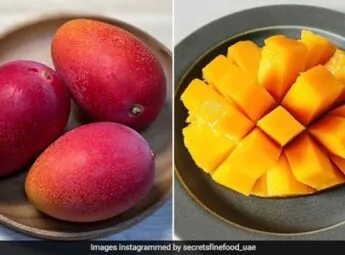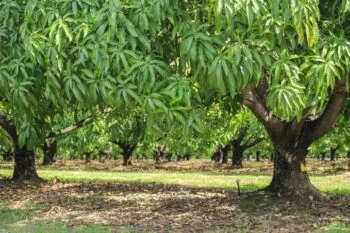Karma/ The action
Karma means action.Deeds, words, and thoughts together come under karma/actions. Whatever jiva does, outwardly or inwardly by body, mind and speech is karma.
You have already learnt how does the action take place. “Because of the deep sanskaras/ vasanas which resides in the causal body, a desire arises in the mind….then to fulfill it, thoughts are created…then in order to physically impliment it, body gets in action.
Every action gives its results. Results may be good or bad. One who does the action, has to enjoy or suffer its result.This is called ‘bhoga/ भोग.’
( There is no appropriate word for bhoga in English. They call it ‘enjoyership ‘ but in fact, you can enjoy only good results and suffer the bad results. Bhoga meaning in sanskrit includes both sukha bhoga or dukha bhoga.)
This bhoga strengthens the vasana.(sukha and dukh bhoga both deepens the impressions /samskaras, which in turn creates the desires.) Thus the wheel / cycle of vasana~desire~action/karma~bhoga~again the vasana.. is ever revolving.
Let us simplify this concept with routine example.
Desire to eat panipuri arises…you think upon the places where to eat panipuri according to it’s taste and price. Then you physically go to eat the panipuri. Thus desire_ thoughts_action. Now if the panipuri is tasty you will enjoy and if it is otherwise, you will suffer. This is bhoga.( sukha or dukha bhoga)~ results of action/ fruits. The bhoga strengthens the vasana.( if you enjoy it, this will make impressions/ trail at subtle level which is called vasana. This vasana agnain comes at superficial level as desire in the mind, which will bring back here again to enjoy more.)
We are born on this earth plane on account of our karmas/ actions done in previous births. This body and this condition of mind are both the results of effects of past karmas. We can not live without actions. Man performs countless actions from birth to death. Each action produces results.
E.g. I put my finger in the hot water(action); my finger get burnt( result); So I suffer(bhoga- dukha)
I sow mustard seeds in the soil( action), the saplings will come out after few days(result); I will enjoy the crop( sukha-bhoga)
It is said that good karmas bring good results and bad karmas brings bad results. How do you know which karma is good and bad? It is the intention behind the actions, which decides whether the action/ karma is good or bad.
E.g. A robber uses a knife to injure the people. A doctor uses a knife to save the people’s life. Thus both uses instruments but their intention behinds its use decides the results.


( actions of both are same but intentions different) Good intentions of a doctor result in merit( punya) and bad intention of a robber in demerit( papa).
The effects of karma need not be immediate; it can be later in one’s current life or extends to future lives.
The various actions are categorized into three, depending upon the result that one gets from them at different periods of time. They are~
Agami/ आगामी कर्म , Sanchit/ संचित कर्म. Prarabdha/ प्रारब्ध कर्म.
In Vedantic literature, there is a beautiful analogy to explain these three types of karma. There is a bowman with the bundle of arrows in the quiver. He has already sent an arrow which has left his hands. He cannot take it back. And He is about to shoot another arrow.

Accumulated impressions/The karmas in the quiver are the accumulated deep impressions (Samskaras) that have been collected over our previous births. Some arrows have been added to the quiver (new Karmas) and others have already been shot (old Karmas), and are no longer in the quiver.
Arrow already shot/The arrows in flight are the Karmas that have already started to play themselves out, either in our inner world or in the external world. These are the arrows that have already been shot. The arrows and our actions still in flight are called “Prarabhda Karma.”
They have to run their course/ An arrow in flight cannot be called back. It must complete its journey.
Thoughts, speech, and actions that have been set in motion cannot be called back. They too will run their course, bringing consequences or fruits.
The arrows in hand are the most important: The arrows that are in our hands today are the ones that we currently have a choice about where to aim and how to shoot. The arrows and choices in our hands today are called “Kriyamana Karma”/Agami Karma”
The results of actions/karma performed in all previous births which are in seed form and giving rise to crores of births in future are called sanchita karma. Each one of us already has a very good capital of karma. (Sanchita, the vast storehouse of yet unseen impressions )
From the total capital of sanchita karmas, those actions which have fructified to give us the present birth and the experiences in this birth are prarabdh karma. Thus the actions which give result in this very world in the form of happiness or misery, and which can be destroyed only by enjoying or suffering (bhog) them is called prarabdha Karma.
An arrow that has been shot from the bow, hits its target and exhausts its momentum. (Prarabhda, consequences already playing themselves out. )
While exhausting the prarabdha Karma, we go on creating new karmas. like the bowman takes the arrow and about to shoot it. These are Agami or Kriyamana karma. One has choice to shoot or not, act or not.That means we have control over Agami karma. These Agami karma will get added in the sanchita karma.
lets simplify it with a beautiful example. One person has huge amount of mangoes stored in one big room. They are from so many mango trees he own after sowing the seeds years back. Among these fruits, few batches of mangoes get ripened. So he starts eating those mangoes. He becomes happy when mangoes are sweet. And he becomes unhappy when mangoes are sour.
After eating the mangoes, he sows its seeds again.
Now be attentive~ Huge amount of mangoes in the room is like sanchita karma.

Those ripened fruits are like prarabdha Karma.

( He has to eat those mangoes. And enjoy or suffer because of its taste. This birth is given to us to exhaust the prarabdha Karma which gives either joys or sorrows ( unavoidable).
After eating the mangoes, the person has the choice whether to sow the seeds again or not. He has a choice of sowing only sweet mango seeds so as to get only sweet fruits in future.

This current life is the result of our past karmas. We are enjoying and suffering the good and bad events which are unavoidable and inevitable. It’s our prarabdha, we have to exhaust. But while exhausting the prarabdhas, we are creating new karmas/ Agami, and It is in our hands to choose the good or right new karmas so as to get good birth in next life. So…do good and get good…..as you sow, so you reap. More about Karma in next part.
Hari Om !









Comments & Discussion
7 COMMENTS
Please login to read members' comments and participate in the discussion.